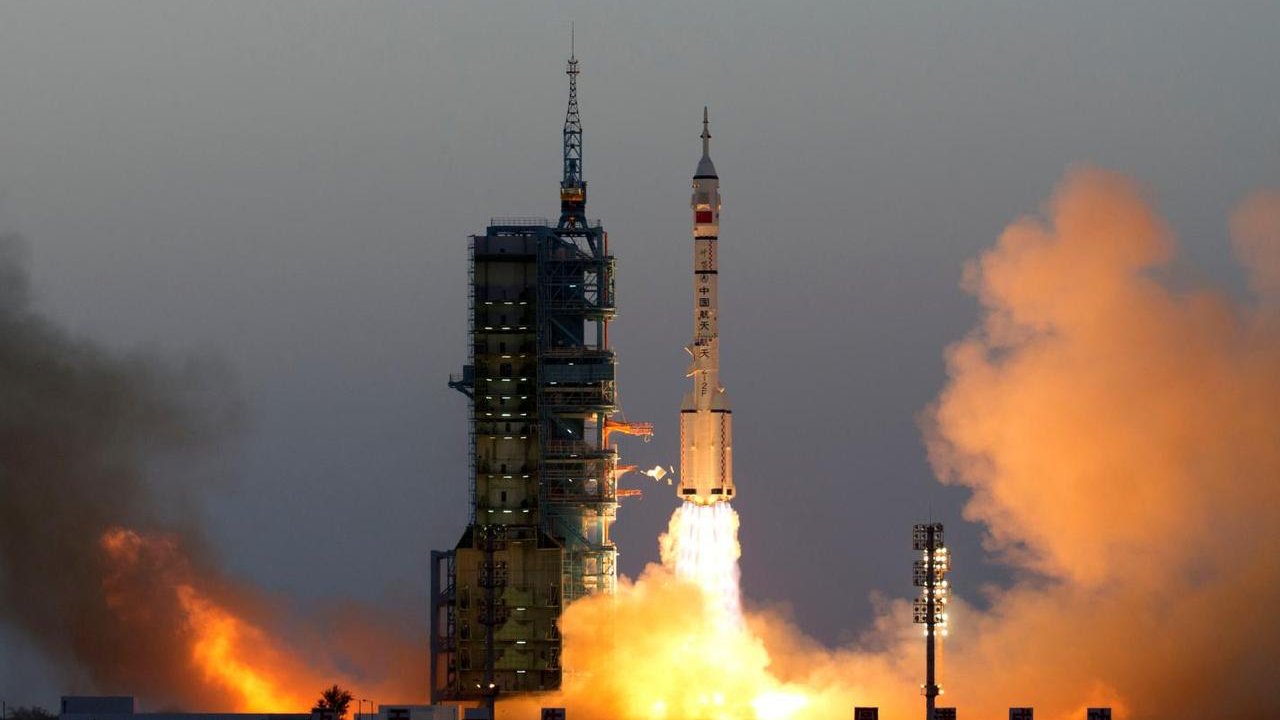
Technology
23:15, 12-Apr-2019
New space age draws on public-private collaboration
Henry Zheng

Space
exploration was once the domain of superpowers, but now, private
companies are racing to make it accessible to tourists and
enterprises alike. As the endeavor requires the fuel of talent, labor
and money, there have undoubtedly been hiccups along the way.
The
latest lofty attempt to end in failure belonged to a probe from a
private Israeli firm. SpaceIL had wanted to make a soft landing on
the lunar surface with the Beresheet spacecraft, but engine and
communication troubles led it to crash on Thursday local time.
The
spacecraft's payload had included a time capsule of cultural
artifacts and sensor equipment for gathering data on the moon's
magnetic field. Unfortunately, its journey ended as a pile of debris
that had been worth 100 million U.S. dollars.
The
mission was initially funded by billionaire Morris Kahn, who
subsequently got others such as casino billionaire Sheldon Adelson to
sign on. Kahn now serves as the president of Space1L. But even with
private funding, shooting for the moon and beyond is expensive. It's
no surprise, therefore, that many private space firms today are ready
to offer services to those willing to pay.
Commercial
projects such as the world's first-luxury space hotel and tourist
flights to space may be realized in the next few years. Previously,
the firm Space Adventures had successfully organized seven tourists
to go to the International Space Station, in collaboration with
Russian space agency Roscosmos. Media darling SpaceX, meanwhile,
is making its money by launching satellites and other equipment for
NASA as well as private firms. Perhaps as part of its plan to send
humans to Mars, the California-based company also announced in 2017
that it aims to fly two citizens around the moon.
As
such, the line between private and government space missions isn't as clear as before. NASA, for instance, has poured 44 million U.S.
dollars in private companies such as Jeff Bezos's Blue Origin in a
competition to help commercialize space. Of course, long-time
government partners Boeing and Lockheed Martin took the lion's
share with 13.9 million U.S. dollars.
China
is also seeing a burgeoning private space sector after a storied
government program. The government called for private capital to
invest in satellite operations and commercial rockets back in 2014.
Since then, domestic companies such as OneSpace and LandSpace have
attempted to launch satellites into orbit, but success has been
elusive.
Opportunity
abounds, however, as money from venture capital firms flows into the
sector. Data from the China Money Network show that the country's
private space firms raised about 1.66 billion yuan (241 million U.S.
dollars) from January to August last year. Funding also comes from
the state-owned China Aerospace Science and Technology Corporation.
There
is no singular path to profitability in space, but as investments
pour in, collaboration between private companies and governments
grow, and technologies become cheaper, we have firmly set foot in a
new space age.
(Cover image: China's Shenzhou-11
manned spacecraft blasts off from launchpad in Jiuquan, China. /Reuters Photo).

SITEMAP
Copyright © 2018 CGTN. Beijing ICP prepared NO.16065310-3
Copyright © 2018 CGTN. Beijing ICP prepared NO.16065310-3